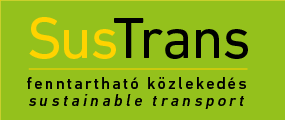Cooperation for sustainable transport in the Visegrad region
A program designed to supply deficiencies was launched in autumn 2011 in order to provide guidelines for strategy formation in the transport sector. The governmental strategies in their present state are not capable of transposing the transport systems onto a sustainable basis. This two year long program is supported by the strategic grant scheme of the International Visegrad Fund, and is being initiated by Energiaklub (HU) in cooperation with experts of the further three Visegrad countries, involving the University of Žilina (SK), Green Mazovia (PL) and Centre for Transport and Energy (CZ).
The processes of the recent years have made it clear that the efforts for mitigating climate change can only be successful if they are expanded to the sector of transport as well. The simple reason for this is that the rapidly growing energy consumption and emission of the transport branch is mopping up all the achievements of all other sectors. This trend is well represented by the fact that transport’s share is more than one fourth of the CO2 emission within the EU, while it amounts to 21% of the total energy consumption in Hungary.
The main objective of the project is to create a package containing strategic and practical recommendations for decision makers, furthermore to set up a knowledge base built on the experiences and information of the partner countries. These will provide valuable guidelines for creating strategies both on national and local levels. The core elements featured in the project are the sustainable transport roundtable meetings to be held in all four Visegrad countries. According to the plans, the participants of the roundtable meetings will consist of governmental strategists, universities, research institutions, local governments, civil organizations and the stakeholders of the various transport modes.
The reduction of emissions has always been a significant effort of Energiaklub, this is the reason why the organization sees importance in the success of the project which is due to yield results applicable even on an international level.






